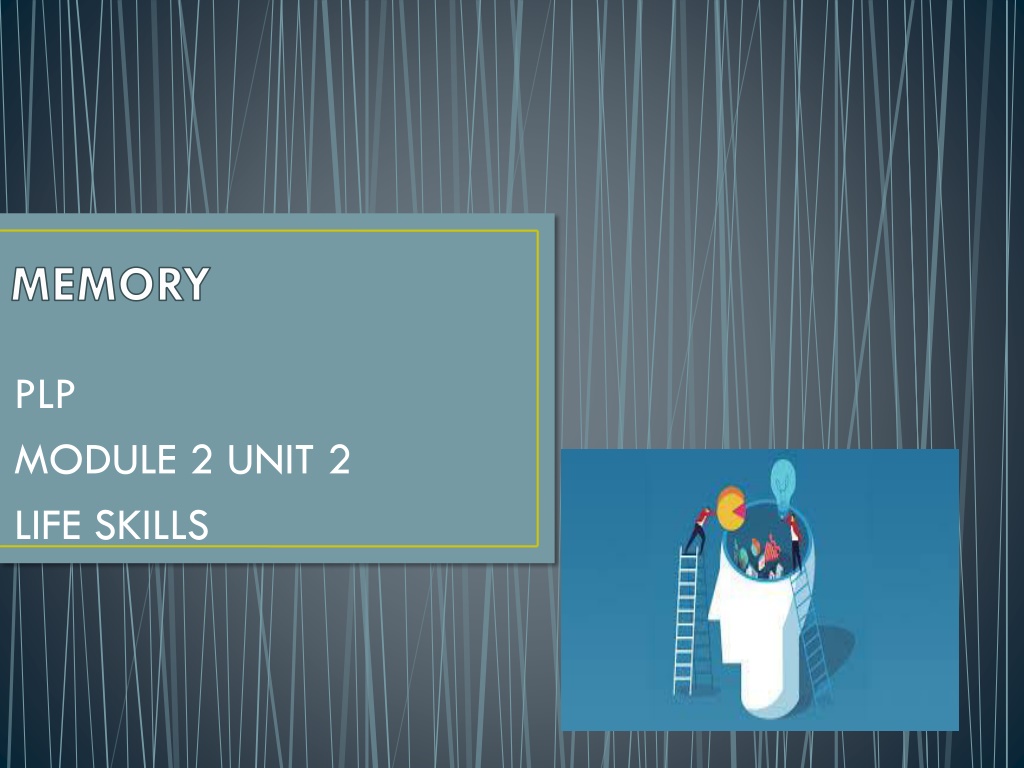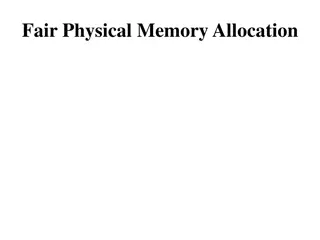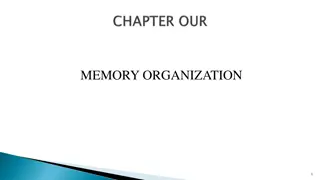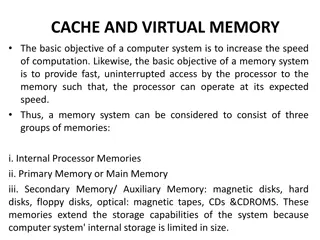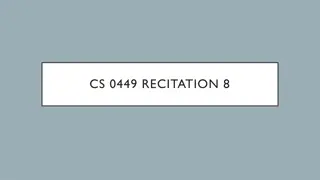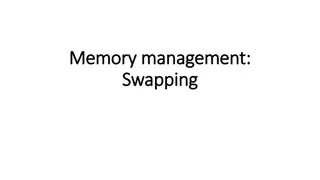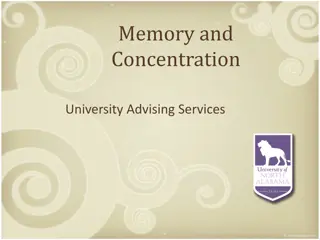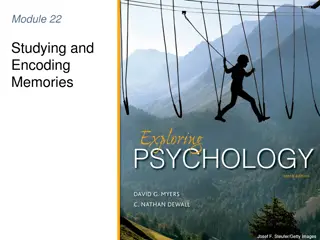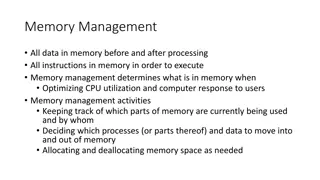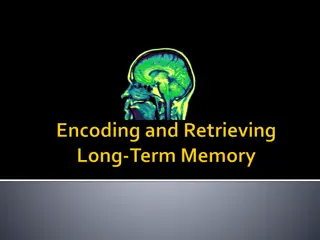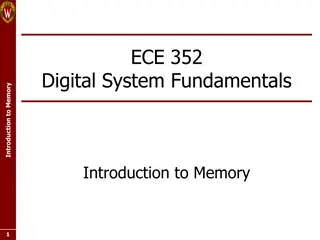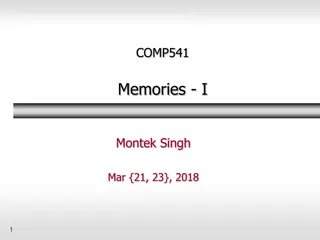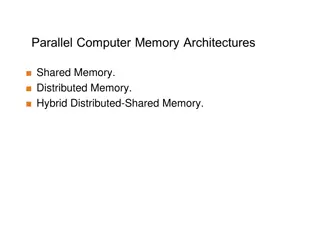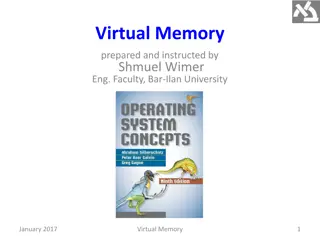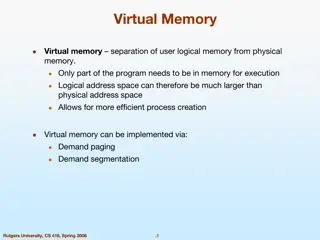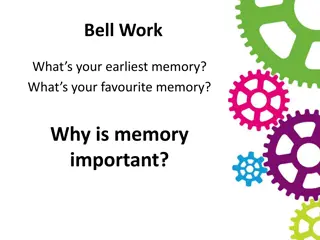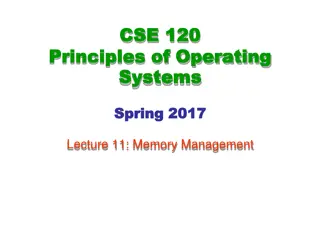Understanding Your Memory System: A Guide to Enhancing Recall
Learn about the three components of the memory system - sensory memory, short-term memory, and long-term memory. Discover why we forget and how to improve memory retention through techniques like positive attitude, focus, mnemonic devices, and more. Enhance your memory skills to boost learning efficiency and retention.
Download Presentation

Please find below an Image/Link to download the presentation.
The content on the website is provided AS IS for your information and personal use only. It may not be sold, licensed, or shared on other websites without obtaining consent from the author. Download presentation by click this link. If you encounter any issues during the download, it is possible that the publisher has removed the file from their server.
E N D
Presentation Transcript
MEMORY PLP MODULE 2 UNIT 2 LIFE SKILLS
2.1 The Memory System We all have a memory system and we can all learn to remember well. The memory system works in three ways: Sensory memory (also known as immediate memory): Immediate means what you remember now. The sensory memory keeps information we get from our senses (what we see, hear, taste, smell and touch, but only for a few seconds. E.g. cars, people, smells that you passed this morning Short-tern memory (also known as working memory): your short term memory can only seven chunks "or (bits) of information before your memory becomes overloaded and you forget. You forget information in your short term memory quickly. E.g. Cell phone can be chunked into four parts 078 225 16 02
Long-term memory: these are things that you remember for a very long time. Things that are in your short-term memory can move into your long-term memory. E.g. your long-term memory is like a library. You can keep memories like you would keep books in a library.
This is what our memory system looks like and how it works: Sensory Memory Short Term Memory Long Term Memory New You store information like you store books in a library, to fetch and use when you need it. Everything that happens around us information from five senses See Hear Touch Taste Smell You store information that you need right now, but if you don t use it you forget it Store Record Fetch You reme mber what you need to and let go the rest When you study you store informati on you can fetch and use it in a test
2.2 Why do we forget? The most important reason for forgetting something is that you did not learn enough. To remember something, you must first learn it so that you can store it in your long-term memory. Reasons we forget: Lack of understanding (It may be hard to remember information if you did not understand) Stress
2.3 How to remember better 1. Attitude: if you are feeling positive it is easier to learn. You have to decide that you want to remember. 2. Stay focused: pay attention and focus on one thing at a time. Work on the more difficult modules first 3. Songs: Making rhythms and songs will also help to remember some of your module s content. Create your own recordings and listen to it while travelling to college. Video to watch: https://www.youtube.com/watch?v=3SwaOvWD-PY 4. Acronyms: Take the first letter of a group of words you need to memorize and create a catchy new word. Then, practice the individual words so you know what each of the letters mean. For example: S P E C I A L M A G I C I N L I V I N G E V E R Y D A Y if you think of SMILE you will remember that there is Special Magic in Living Everyday
5. Acrostics: Acrostics are similar to acronyms, but the first letters from the words in a sentence. This is a good way to remember something in a specific order. For example: Order of solving mathematical equations: Please Excuse My Dear Aunt Sally Parenthesis, Exponents, Multiplication, Division, Addition, Subtraction Remember the sentence to make sure its easy. 6. Visualisation: it simply means seeing a picture in your head. A cros(s) Tic(k)
7. Flashcards: A flashcard is just a little card you write information to study. You can use many ways to help you memorise on your flashcards- use songs and Rhymes, acronyms, acrostics and pictures (visualisation) to make them. ACTIVITY: WORKBOOK, ACTIVITY 2.3.1
